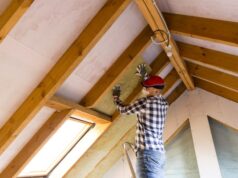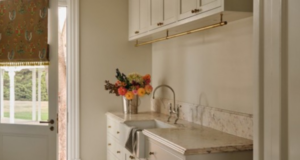
Learn how to find the right builders – and how to get things right at the quotation stage so that you avoid the most common problems with building contracts.

It’s hard to overstate how important it is to choose the right builder. Cringeworthy stories about cost blowouts, disputes and miscommunications would be far fewer and further between if people were better informed about what they should be looking for when choosing a builder for their home, and if communications and expectations were clearer at the quotation stage.
Building your house is obviously a big deal – there are all kinds of fascinating things that can go completely wrong, and there’s a lot of money involved. Thankfully though, there’s much you can do to avoid unnecessary grief and to ensure everything goes off smoothly.
How to find good builders
Great builders aren’t hard to find – but just picking random builders out of the phone book because they have a snazzy logo or a name that tickles your funny bone isn’t the best way to go about it. Neither, for that matter, is entrusting the process to an indiscriminate middle-man quote service. It’s really important to do a bit of homework for yourself. Talk through quotes with the people providing them, thoroughly check references and credentials, and find someone you believe you can genuinely work well with.
Building designers and architects often work with the same trusted contractors who they know will do justice to their designs. A recommendation from your building designer or architect is usually a great place to start. Even if they aren’t able to recommend anyone specifically, most designers will be able to help you to find, understand and assess quotes.
Asking friends and family for recommendations is also a smart way to go. Just make sure you’re asking for genuine recommendations based on their own experiences with contractors, rather than simply asking if they ‘know anyone’. The builder’s credentials and professionalism are all that counts. A builder who’s a friend-of-a-friend who feels like they’re doing someone a favour (or who’s too ‘familiar’) may treat your project as a lower priority.
Never limit your options to a single builder either – it’s very important to get between three and five quotes from your preferred builders if you want to be sure you’re getting a good deal. Don’t ever assume that the cheapest is the best choice by default – the last thing you want is a builder who has to cut corners to make a profit.
What is a ‘tender package’?
The best way to get clear, comparable quotes from builders is to give them a good ‘tender package’ (…which is not as dirty as it sounds). A tender package is a complete set of plans and documents designed to tell the builder exactly what the project entails, and exactly what needs to be built.
The tender package is something you’ll normally need to prepare in conjunction with your architect or building designer, who’ll have some experience in this area.
What does a tender package contain?
Below are the key documents and pieces of information that should be provided in your tender package to ensure you’re getting an accurate quote:
- Scope of works – This is a detailed outline of the work that you need done, which is normally prepared by your architect or building designer. If you’re hoping to reduce costs by lending a hand yourself or using a third party contractor (e.g. you may have a family member who’s an electrician) then this should be very clearly explained. A precise scope of works allows contractors to accurately quote for labour and subcontracting costs.
- Building schedule – This document provides specific detail about the materials, fittings and fixtures you want for every part of the house. This will help the builders to give an accurate costing for the materials required, and ensure that all of the builders are quoting for the same standard (and brand) of materials. This list should be as thorough and detailed as possible to help prevent cost blowout. Where things haven’t yet been chosen, allocating specific budgets for certain things can help to do the same job.
- House plans, diagrams and engineering documents – Clear, comprehensive house plans and supporting diagrams should be provided so that the builder has a very clear idea of exactly what’s involved, and so that there’s no confusion about what’s involved. This includes engineering reports and soil test results.
Specific requests when asking for quotes
As part of your request for quotes, you should also request the following:
- That you or your designer be consulted about any changes to the building schedule – Ensuring that this is made explicitly clear from the outset (and that it’s written into the contract) could well save you from unexpected, expensive or disappointing substitutions in materials or fixtures.
- Fully itemised quotes – A detailed breakdown of how the builder has quoted for each different aspect of the build will allow you to see very clearly what you’re paying for, and why different builders might charge differently.
- Start dates, dates of milestones and end dates – The amount of time that construction takes is likely to affect your living costs and other expenses, and a realistic account of the building timeline is very useful to help you manage related expenses. If you’re not building in a new ‘greenfield’ development, be aware that councils and services may be much slower, and stricter about what you can and can’t build.
- The progress payment schedule – This should be clearly written into the contract to avoid any confusion.
- Environmental commitments – Asking for a detailed explanation of how construction or demolition waste will be reduced and managed, how sediment will be controlled and similar issues will help to ensure there’s no misunderstanding about this further down the track – and that if necessary, it’s appropriately costed. Specific requirements may differ from council to council too, so it’s a good idea to check what’s required.
- Proof of licenses / registrations / builder’s insurance – Check the builder’s credentials with the relevant authority in your state or territory. All builders need to be able to provide documentation about their insurance too.
- References and examples of work – References from previous clients – and particularly arranging to be able to inspect a builder’s prior work will help you to get a much better appreciation of how they work. Don’t settle for a drive-by of a house the builder’s worked on in the past. You really need to talk to their previous clients and inspect their workmanship.
The amount of detail you put into your requests for quotes will directly affect the quality and usefulness of the quotes that builders provide you with, and for that reason alone is well worth the effort. Requesting finer details in quotes (things like how many coats of paint, specific brands / models of door locks etc.) will help you compare different builders far more clearly and fairly. It’s a great way to prevent small miscommunications from becoming real headaches halfway through your build.
Red flags / what to look out for
- Quotes that are significantly too high or too low.
- Quotes that are incomplete, lacking in detail or don’t list everything you’ve requested. Look carefully.
- Provisional costs – these are estimates that may end up being significantly different (usually higher) and could lead to much higher overall fees. Lump sum costs by contrast are fixed.
- Incomplete or absent licensing details or references.
- Poor communication or any hint of belligerence or attitude.
Looking for a good builder? Use our Get Quotes page to get 3 free quotes from qualified, licensed builders in your area.





